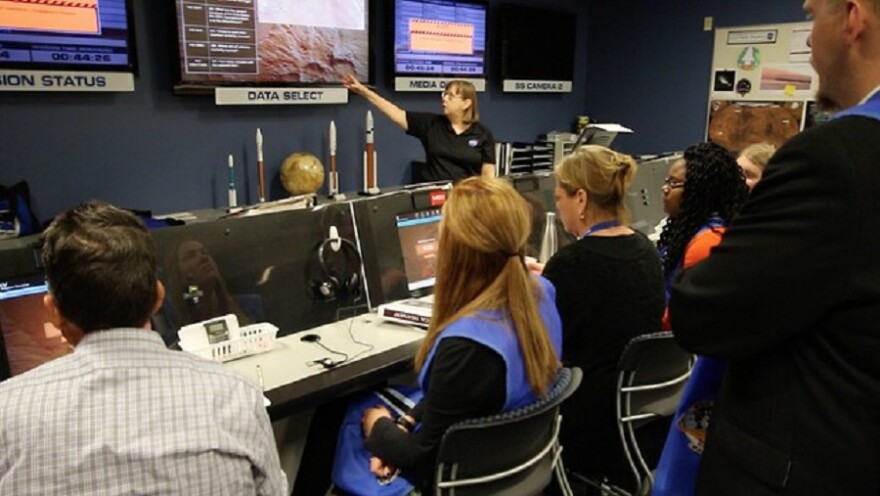A half century after the first lunar mission, a space educator said we have plenty of reason to go back to the moon.

Libby Torbeck, flight director at Challenger Learning Center in Normal, said NASA plans to study the dark side of the moon in a return trip in a few years.
“What a lot of people don’t realize is the space program ultimately is about bettering life on earth,” she said. “The advances we make in building lunar spacecraft and landers and the sciences we do in the space station always end up benefitting people back here on earth.”
The learning center, housed at Heartland Community College, is hosting several events this week to mark the 50-year anniversary of the moon mission, including a simulation at 6 p.m. Friday and a “One Giant Leap” program for children and parents at 9 a.m. Saturday.
Torbeck said she hopes these educational missions will spark more interest in the space program and what NASA could learn by returning to the moon.
“Some people think we’ve learned everything there is to learn about the moon, but that would be like taking a dirt sample from your backyard and saying you understand everything about North America from the single sample,” Torbeck explained.

Torbeck said she hopes to see more girls get involved in space. She said she’s noticed younger girls often show interest in grade schools, then many find other interests once they get to junior high or high school.
“At that age girls are getting so many interests, that they have to choose between space camp and horse camp and sometimes they choose horse camp instead,” Torbeck said.
She said the learning center has hosted all-girls camps to help encourage girls to see that space exploration is not just something boys are interested in.
“At kindergarten I still have a chance to say, ‘Hey, you know what, you don’t have to do that just because that’s what everyone else is doing. You like this thing the boys are doing. Let’s do that.’”
The next lunar mission Artemis is named for the Greek Goddess of the Moon, Apollo's twin sister.
It aims to send its first woman on the moon.
WGLT depends on financial support from users to bring you stories and interviews like this one. As someone who values experienced, knowledgeable, and award-winning journalists covering meaningful stories in Central Illinois, please consider making a contribution.




